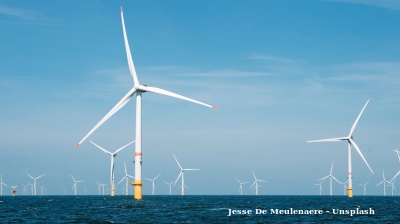Earth briefly passed the threshold of 2 degrees Celsius warming on November 17 for the first time, a milestone that climate scientists have long warned about.
The global average temperature has never before exceeded a rise of 2 degrees Celsius since before industrialisation. This is from preliminary data shared on X, formerly known as Twitter, by Samantha Burgess, who is deputy director of the EU’s Copernicus Climate Change Service.
The rise in temperature is alarming, even although scientists say that for truly catastrophic and irreversible impacts to occur, the earth would have to exceed 2 degrees for some time.
We are cooking and we are not doing enough to stop it, say observers.
“Our best estimate is that this was the first day when global temperature was more than 2°C above 1850-1900 (or pre-industrial) levels, at 2.06°C,” Burgess said.
It was the warmest November 17 on record. She said on X that global temperatures that day averaged 1.17 degrees above 1991-2020 levels, and was 2.06 degrees hotter than during pre-industrial times.
The temperature serves as a warning for the world as global delegates are readying to meet in Dubai for the annual US climate conference, COP28, starting on November 30. Signatories of the Paris climate agreement pledged to limit warming to 2 degrees above pre-industrial levels, with a goal of limiting it to 1.5 degrees.
One day above the two degrees threshold “does not mean that the Paris Agreement has been breached,” cautioned Burgess in an interview with CNN, “but [it] highlights how we are approaching those internationally agreed limits. We can expect to see [an] increasing frequency of 1.5 degree and 2-degree days over the coming months and years.”
Even climate scientists’ warnings have been exceeded.
Richard Allan, a climate scientist at the UK’s University of Reading, told CNN that the rise on November 17 is a “canary in the coal mine” and it “underscores the urgency of tackling greenhouse gas emissions”.
It’s “entirely expected that single days will surpass 2 degrees above pre-industrial well before the actual 2 degrees Celsius target is breached over many years,” he added.
Global temperatures were at record highs in July, August, September and October.
A recent UN report found that greenhouse gas pollution in 2030 will remain 9% higher than in 2010. And according to the Intergovernmental Panel on Climate Change (IPCC), global nations must cut emissions by 45% by 2030 compared with 2010 if there is hope in limiting warming to 1.5 degrees.
An increase of 9% means that we are way off track.
bneGREEN

North Macedonia's Skopje tackles mounting waste and rodent crisis
Locals say the problems in Skopje's Centar municipality worsened during the local election period when political campaigning took precedence over maintenance.

Malaysia–Vietnam offshore wind project to deliver 2,000 MW by 2034, strengthening regional green energy links
Malaysia’s upcoming offshore wind project connecting Vietnam to Peninsular Malaysia is expected to generate up to 2,000 megawatts (MW) of clean energy by 2034, marking a major step in the nation’s renewable energy expansion

EBRD invests €16.8mn in Croatia’s first large-scale battery storage and virtual power plant
Development bank to take its first equity stake in a standalone merchant storage project.

Kyrgyzstan says neighbours “upset” by country’s lack of water
“This year we were supposed to overcome shortages, but instead, they have intensified,” deputy head of cabinet tells Uzbekistan and Kazakhstan.

_Cropped.jpg)


